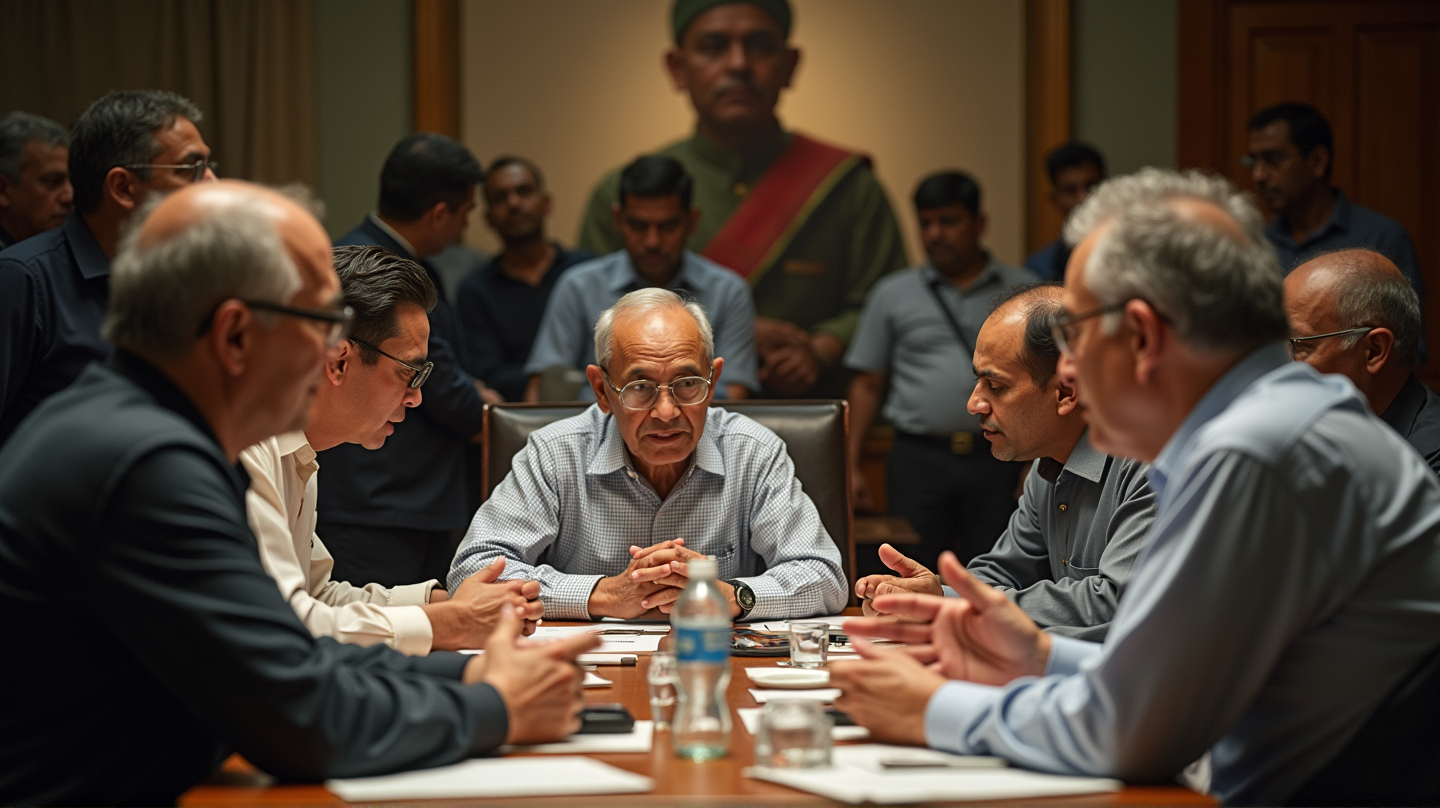Bangladesh's Political Crossroads: Can Yunus Bring Elections?
Under pressure, Muhammad Yunus in Bangladesh struggles to announce elections amid political unrest and criticisms, risking further turmoil.

In a landscape fraught with rising tensions, political chess moves in Bangladesh have placed Nobel Laureate Muhammad Yunus in a precarious position. The Sunday meeting whirlwind in Dhaka showcased the intensity enveloping the interim leader to prioritize democratic elections—a prospect that remains in distant speculation. According to NDTV, the interim period initially aimed for a seamless transition has devolved into a timeline tangled with controversies and critiques.
A Political Tug-of-War
A roster of delegations marched through Sunday debates, nudging Yunus towards prioritizing elections over policy-making—a task meant for an electorate-sanctioned government. The Bangladesh Nationalist Party (BNP), representing the core opposition during the erstwhile Sheikh Hasina government, presented their urgency through a string of demands for a democratic transition, pinning hopes on returning to civic rule.
Unease and Dictatorship Allegations
Tarique Rahman of BNP left no stone unturned in his sharp critique of the status quo. He likened the deviation from democratic paths to an onset of dictatorship, cautioning Yunus against monopolizing power. This sentiment echoes across political spectra, from the Jamaat-E-Islami to the National Citizen Party, who remain divided in their advisories to Mr. Yunus.
Hasina’s Reproach and National Concerns
In a poignant ripple, former leader Sheikh Hasina castigated Yunus for succumbing to external influences, allegedly compromising the nation’s sovereignty for self-preservation. Her expressions resonate with those demanding electoral resolve, a sentiment underscored by the Bangladesh army’s clear stance for December elections.
The Rohingya Conundrum and Geopolitical Shifts
Amidst burgeoning domestic pressures, external issues, like the proposal for a Rohingya Corridor—tagged controversially as a ‘bloody corridor’ by General Waker-Uz-Zaman—complicate Yunus’ labyrinth of leadership predicaments. Allies and adversaries alike recognize the need for politically responsible governance to navigate such terrain.
Yunus’ Response and the Path Forward
Caught in this intricate dance of political dynamics, Yunus’ latest congregation of the Advisory Council underscored the trichotomy of elections, reforms, and justice. His conditional commitment to broader unity reflects a deepening acknowledgment of the political abyss into which Bangladesh might be descending without decisive electoral declarations.
Will Yunus’ tenure pave a pathway towards constitutional order, or does the interim lead imply an indefinite pause until unforeseen peripheries redefine national discourse? The nation and beyond watch, waiting for the pendulum of democracy to swing on an axis determined by ultimate truths, transcending the tangles of contemporary confrontation.





